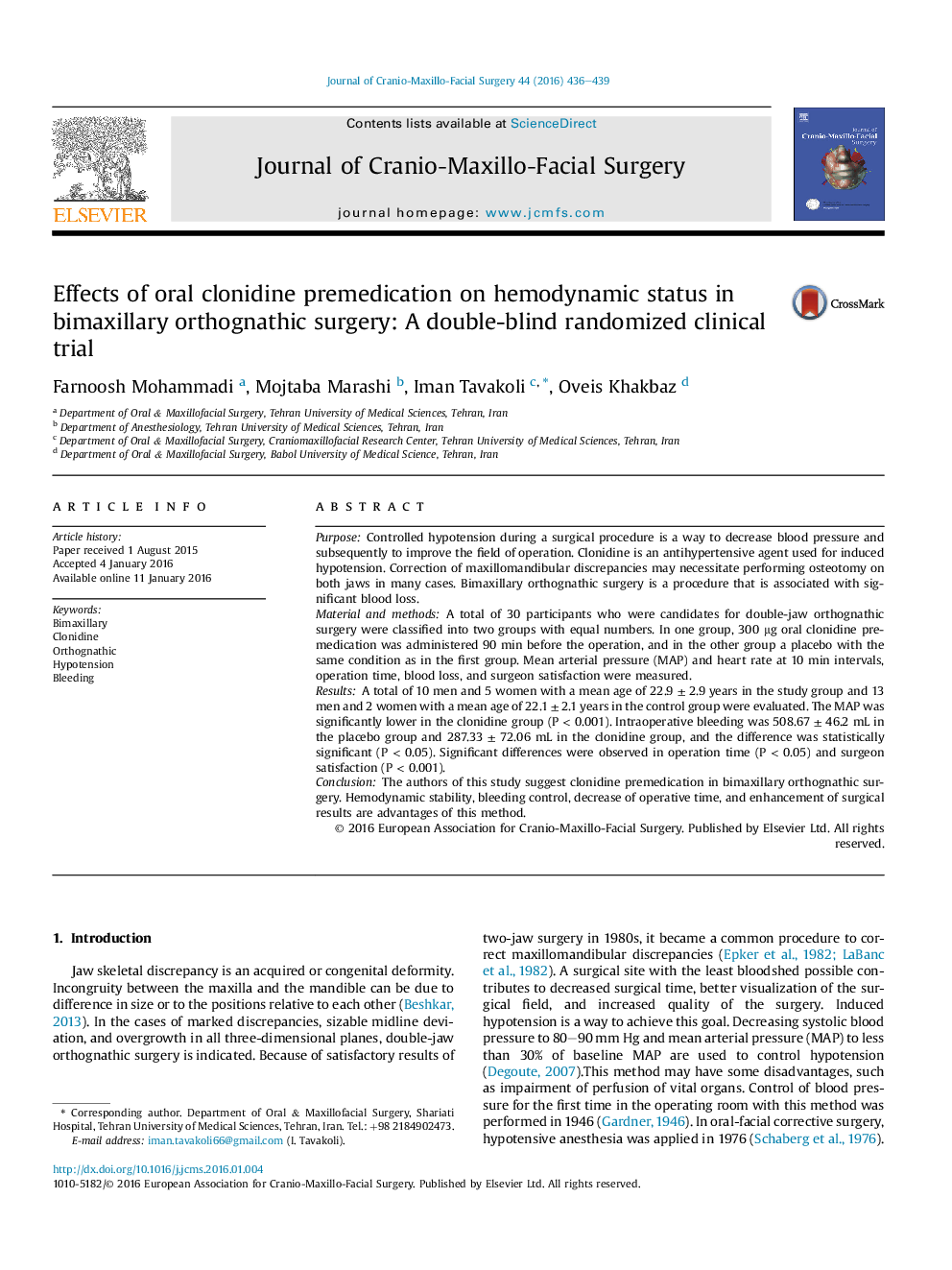| Article ID | Journal | Published Year | Pages | File Type |
|---|---|---|---|---|
| 3142481 | Journal of Cranio-Maxillofacial Surgery | 2016 | 4 Pages |
PurposeControlled hypotension during a surgical procedure is a way to decrease blood pressure and subsequently to improve the field of operation. Clonidine is an antihypertensive agent used for induced hypotension. Correction of maxillomandibular discrepancies may necessitate performing osteotomy on both jaws in many cases. Bimaxillary orthognathic surgery is a procedure that is associated with significant blood loss.Material and methodsA total of 30 participants who were candidates for double-jaw orthognathic surgery were classified into two groups with equal numbers. In one group, 300 μg oral clonidine premedication was administered 90 min before the operation, and in the other group a placebo with the same condition as in the first group. Mean arterial pressure (MAP) and heart rate at 10 min intervals, operation time, blood loss, and surgeon satisfaction were measured.ResultsA total of 10 men and 5 women with a mean age of 22.9 ± 2.9 years in the study group and 13 men and 2 women with a mean age of 22.1 ± 2.1 years in the control group were evaluated. The MAP was significantly lower in the clonidine group (P < 0.001). Intraoperative bleeding was 508.67 ± 46.2 mL in the placebo group and 287.33 ± 72.06 mL in the clonidine group, and the difference was statistically significant (P < 0.05). Significant differences were observed in operation time (P < 0.05) and surgeon satisfaction (P < 0.001).ConclusionThe authors of this study suggest clonidine premedication in bimaxillary orthognathic surgery. Hemodynamic stability, bleeding control, decrease of operative time, and enhancement of surgical results are advantages of this method.
